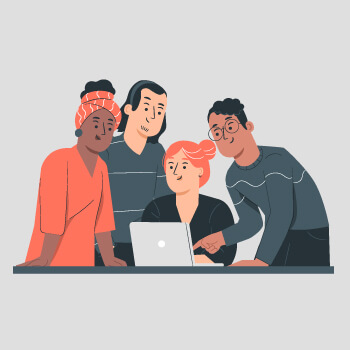
“In a world where data is the new currency, protecting it is not just a legal requirement—it’s a fundamental responsibility.”
- Key Principles of the Data Protection Act
- Commitment for Businesses Under the Data Protection Act
- Data Protection Impact Assessments (DPIAs)
- Implications for Software Testing
- Conclusion
- Key Principles of the Data Protection Act
Data protection has become an important element of modern business operations in the digital sphere where personal information is processed and exchanged at unprecedented rates. The UK Data Protection Act (DPA) is an important legislation designed to protect personal data and ensure the individual’s privacy is taken care of. For businesses, complying with and understanding DPA is about developing trust and committing to ethical data handling.
Key Principles of the Data Protection Act

The UK Data Protection Act is built on various core principles that guide how personal data should be maintained. These principles are difficult for businesses to understand as they lay the foundation for compliance and responsible data management.
Lawfulness, Fairness, and Transparency
Data must be processed fairly, lawfully, and transparently. This reflects that organizations have a significant reason for using and collecting personal data, believe in treating individuals fairly in terms of how their data is used, and should be open about how they handle data.
Minimal Data
Organizations should collect and process the data that is important for a specific purpose. These principles encourage businesses to limit the amount of personal information that they handle while reducing the risk of breaches or misuse.
Data Accuracy
Data must abide by the accuracy level and, where required, should be up to date. Obsolete or inaccurate data may lead to incorrect decisions and be problematic for individuals. Therefore, it is important to consistently correct and review any inaccuracies.
Commitment for Businesses Under the Data Protection Act
To be compliant with the Data Protection Act, businesses must take action to safeguard personal data. These obligations are designed to make sure that the data is securely handled and taken care of.
Here the duty of the Data Protection Officer (DPO) is central to an organization’s ability to abide to the Data Protection Act (DPA). For organizations that undertake the processing of large volumes of sensitive personal data, designating DPO is a legal requirement. The DPO is asked to oversee the organization’s complete data protection strategy, making sure that all data handling processes align with the principles of the DPA.
The appointed DPO serves as the point of contact between the organization and data protection authorities, making sure that all regulatory obligations are met. They are responsible for educating employees about their responsibilities under the DPA, conducting regular audits to assess compliance, and suggesting on organization’s data processing activities, while keeping the personal data fairly, lawfully, and transparently.
In addition to this, the DPO plays a very crucial role in risk management. They shall identify the potential data protection issues before they arise while offering solutions to rectify these risks. This proactive approach helps prevent data breaches and ensures the organization remains in compliance with the DPA, avoiding penalties and maintaining customer trust.
Data Protection Impact Assessments (DPIAs)
A Data Protection Impact Assessment (DPIA) is a systematic process designed to help enterprises identify and minimize the data protection risk of a project. DPIAs are specifically important when a new data processing activity is about to result in a high risk to the rights of individuals.
The DPIA process includes a detailed analysis of how personal data is gathered, processed, stored, and shared. It checks the nature, scope and purpose of data processing activities, permitting organizations to assess the impact on data subjects. The DPIA also considers the potential harm that could result from a data breach or misuse of the data and identifies measures to mitigate these risks.
For enterprises, managing a DPIA is an active step in delivering compliance with the DPA. It helps organizations understand the implications of their data processing activities and allows them to implement guards protecting personal data. A well-conducted DPIA can save costly data breaches, avoid regulatory penalties, and enhance the organization’s reputation by displaying a commitment to data privacy.
Data Breach Notifications
Data breaches are a huge threat to any organization, and the DPA implies strict requirements on how businesses shall respond to such incidents. In the event of a data breach, organizations are legally required to report to the relevant data protection authority without any delay, and in any event, within 72 hours of becoming aware of the breach. This prompt notification is crucial for reducing the impact of the breach and taking the right remedial actions.
The notification to the authorities shall include detailed information about the breach, which includes the type of breach, the data involved, the impact on individuals, and the measures taken to address the breach. If the breach is to result in a high risk to the rights and freedom of individuals, the enterprise must also inform the affected individuals directly. The communication must be clear and concise, while explaining the breach, the consequences, and the steps that will help the individuals protect themselves.
Failure to report to the authorities and affected individuals promptly can lead to severe penalties, including reputational damage and fines. Thus, businesses shall have a robust incident response plan to respond quickly to the data breaches. This may include processes for detecting breaches, assessing their impact, and talking with affected individuals and regulators promptly.
Adhering to these obligations, businesses can comply with the DPA and strengthen their data protection practices, building trust with stakeholders and customers.
Implications for Software Testing

The Data Protection Act (DPA) lays emphasis on the importance of safeguarding personal data, and its principles have severe implications for software testing. As enterprises are heavily dependent on software to manage and process data, making sure that these systems are tested for compliance with data prediction regulations is important. Here’s how DPA impacts the software testing lifecycles:
Ensuring Data Privacy in Testing Environments
When it comes to protecting the privacy of any personal data used during the testing process, testing often needs large datasets to simulate real-world scenarios. Using actual customer data may expose sensitive information to risk. To comply with the DPA, businesses shall implement strategies to make sure that the data privacy is maintained in testing environments.
Secure Data Handling Practices
Security is the foremost thing in software testing environments, as these environments often replicate production systems and may have sensitive information as well. The DPA needs organizations to implement secure data handling practices to safeguard against unauthorized data breaches, access and other security incidents.
Compliance Testing
This specific type of testing verifies if a system meets the regulatory requirements like those outlined in the DPA. This is important for making sure that data handling processes within software applications align with legal obligations and safeguard user privacy.
Conclusion
In terms of the Data Protection Act, incorporating the principles into software testing is a compliance requirement. It is a critical aspect of responsible data management. By ensuring data privacy in testing environments, implementing secure data handling practices and conducting thorough compliance testing, businesses can protect the personal data of their users. Through these efforts, enterprises not just comply with the law but build trust with their customers to protect their reputation in the digital marketplace.
How Tx Helps its Clients to be Compliant with DPA?

Tx assists its clients achieve full compliance with the Data Protection Act (DPA) by implementing robust security measures and best practices that protect sensitive data. Our professionals offer tailored solutions, which include access controls, data encryption, and secure storage, making sure that all personal information is handled as per the legal requirements.
We conduct consistent audits, perform thorough risk assessments, and offer detailed guidance on data protection policies. By integrating compliance into every stage of operations and development, Tx ensures that our clients meet DPA standards and safeguard their customers’ privacy with confidence.
Discover more
Get in Touch
Stay Updated
Subscribe for more info




